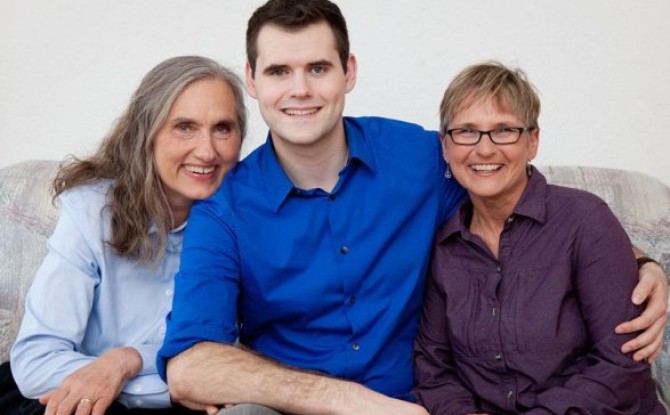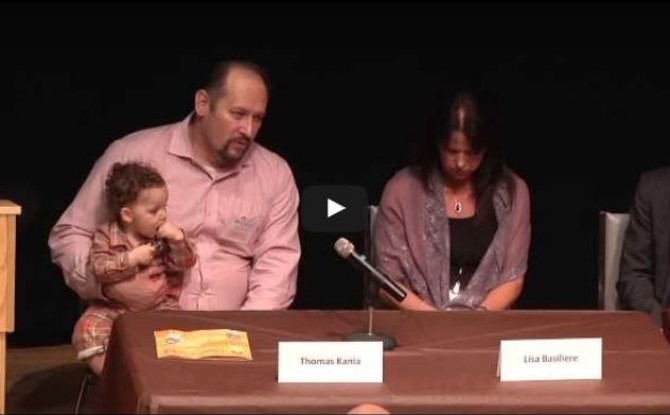By Zack Ford, ThinkProgress.org, October 28, 2013
Two marriage equality cases are advancing to the Ninth Circuit of Appeals from the states of Nevada (Sevcik v. Sandoval) and Hawaii (Jackson v. Abercrombie). In both cases, marriage equality lost at the district court level, distinguishing them from the case challenging California’s Proposition 8 and essentially freeing them of the jurisdictional issues that complicated the Prop 8 case. This means that the two cases provide an opportunity for the court to directly consider the constitutionality of states banning same-sex marriage.
 Numerous professional organizations submitted amicus briefs last week advising the court about why it should support marriage equality and in particular, addressing the question of same-sex parenting. Opponents assert that same-sex marriage should be banned because children fare better with different-sex parents than with same-sex parents. Not only does this ignore the fact that joint adoption is already legal for same-sex couples in both Nevada and Hawaii, but as the scholarly community points out, it disregards the consensus of scientific research endorsing same-sex parenting.
Numerous professional organizations submitted amicus briefs last week advising the court about why it should support marriage equality and in particular, addressing the question of same-sex parenting. Opponents assert that same-sex marriage should be banned because children fare better with different-sex parents than with same-sex parents. Not only does this ignore the fact that joint adoption is already legal for same-sex couples in both Nevada and Hawaii, but as the scholarly community points out, it disregards the consensus of scientific research endorsing same-sex parenting.
In a brief filed by the American Psychological Association, National Association of Social Workers, American Association for Marriage and Family Therapy, American Psychoanalytic Association, and Hawaii Psychological Association, the scholars outline three factors that research has determined leads to good parenting:
- The quality of the relationships between parent and child.
- The quality of the relationships among adults in the child’s life (such as between the parents).
- Available economic resources to support the child’s development (e.g., safer neighborhoods, more nutritious food, etc.).
The groups point out that these factors are not impacted by sexual orientation, and thus there is no reason to conclude same-sex parents would be inferior in any way.
In a complementary brief, the American Sociological Association (ASA) expanded upon what research says specifically about the outcomes for children of same-sex parents:
- ACADEMIC PERFORMANCE AND COGNITIVE DEVELOPMENT: Both young children and adolescents had similar grades in school regardless of the sex of their parents. In fact, children of same-sex couples fare similarly — if not better — on various educational outcomes when compared to children of different-sex parents.
- SOCIAL DEVELOPMENT: Children with same-sex parents tend to have the same number, support, and quality of peer relationships and friendships as other children.
- MENTAL HEALTH: Children with same-sex parents are just as psychologically healthy as children of different-sex parents, proving just as capable of externalizing and internalizing behaviors with no greater levels of anxiety or Attention Deficit Disorder.
- EARLY SEXUAL ACTIVITY: Children of same-sex parents are not more likely to engage in sexual activity. In fact, one study found that children with two moms engaged in sexual intercourse for the first time at a slightly older age than a similar sample of children with different-sex parents.
- SUBSTANCE ABUSE AND BEHAVIORAL PROBLEMS: Children with two moms were not more likely to use substances like tobacco, alcohol, and marijuana, experience problems with substance abuse, or engage in delinquent behavior, nor are children of same-sex parents more likely to engage in rule-breaking or inappropriately aggressive behaviors.
Click here to read the entire article.


